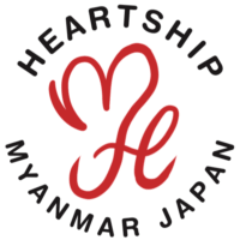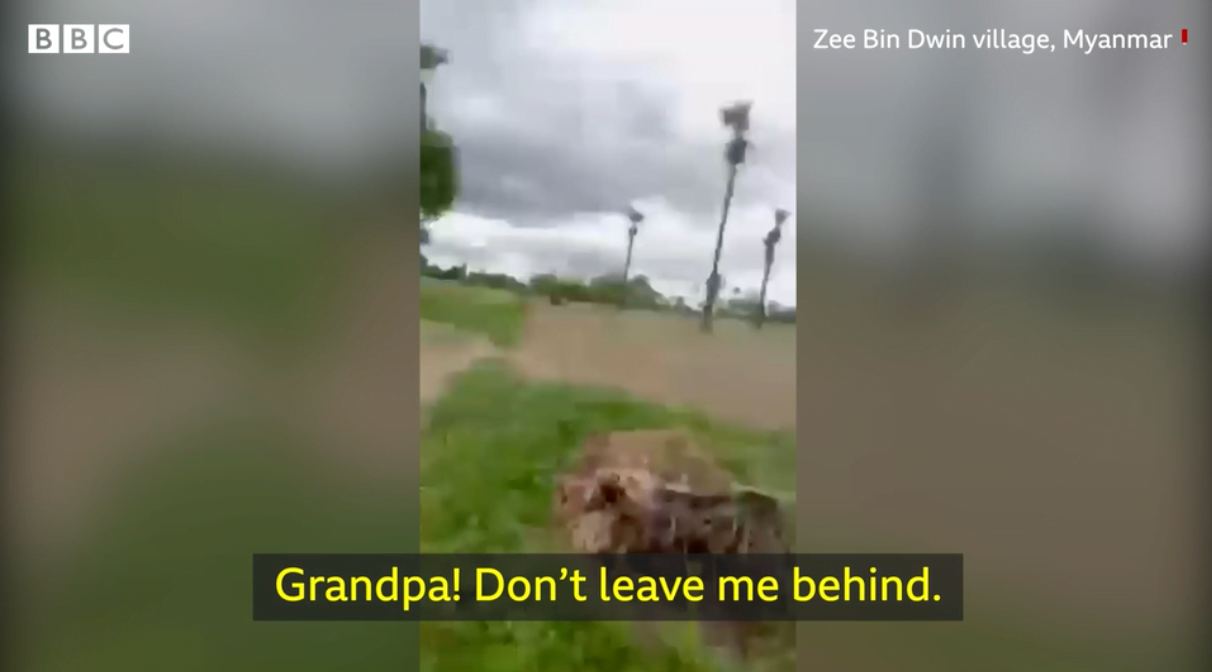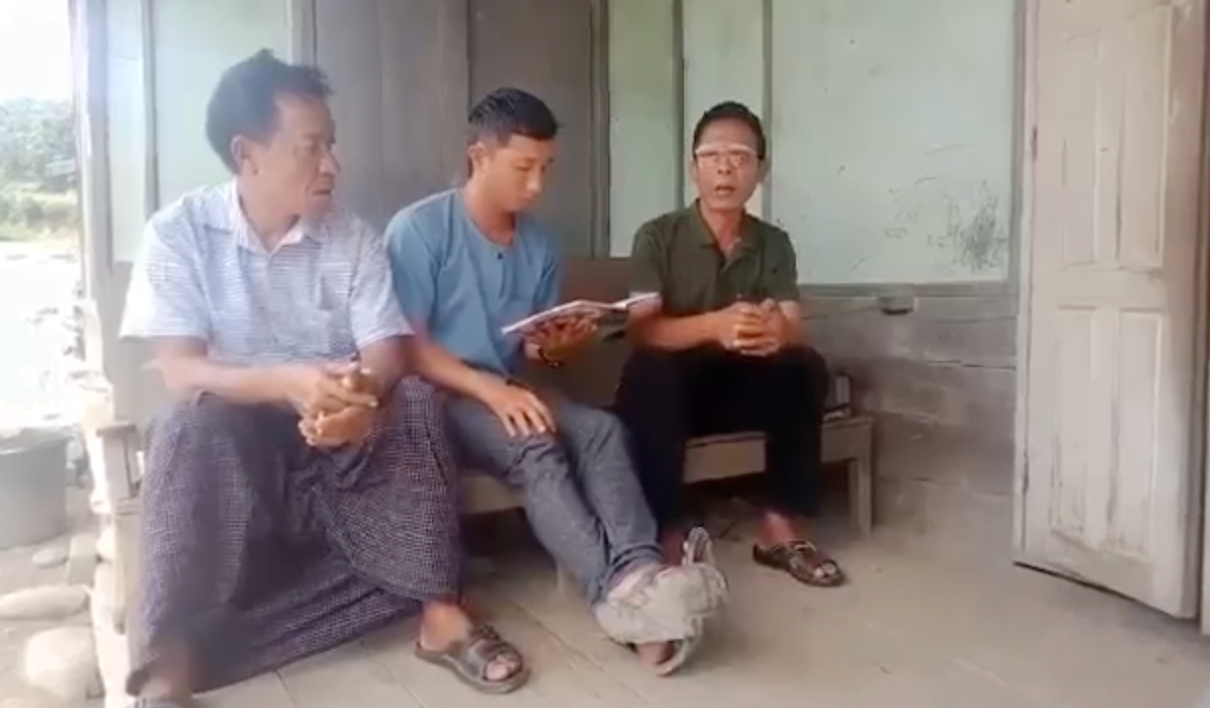UNICEF is declaring the children in Myanmar as “a generation in peril.” We are sharing their report along with a Japanese translation.
Unfortunately, international aid rarely reaches Hualngoram, a remote area far from the capital of Chin State, where Heartship Myanmar Japan is active.
UNICEFは、ミャンマーの子どもたちを「危機に瀕する世代」としています。最近の報告を和訳とともに共有します。
なお、我々HMJが支援しているチン州 Hualngoram地域は、首都から遠く離れた山里に位置しているため国際的な援助が届くことはほとんどありません。
To survive and thrive, all children need stability and safety.
Teetering on the edge: Myanmar’s children bearing the heaviest burden of conflict and instability.
生き延び、成長していくためには、すべての子どもたちに安定と安全が必要です。
瀬戸際に立たされるミャンマーの子どもたち:紛争と情勢不安の最大の負担を背負う
Myanmar’s children are bearing the heaviest burden of the escalating conflict, insecurity, mass displacement, poverty, and disruption of critical services, including health and education, posing serious threats to their wellbeing, future, and survival.
ミャンマーの子どもたちは、激化する紛争、治安の悪化、強制避難、貧困、そして保健や教育を含む重要なサービスの混乱により、最も大きな負担を強いられています。これは、彼らの健康、将来、生存に深刻な脅威をもたらしています。
Since the military takeover in February 2021, Myanmar has witnessed a steady surge and spread of conflict and insecurity across all regions, with over 3.2 million people internally displaced as of mid-20241, nearly 40 per cent of whom are children. Of the total 18.6 million people – nearly one-third of the country’s population – in need of assistance in 2024, at least 6 million are children2, facing an uncertain future.
2021年2月の軍事クーデター以来、ミャンマーでは全地域で紛争と不安定な情勢が着実に増加、拡大しており、2024年半ばの時点で320万人以上が国内避難民となっており1、そのうちの約40パーセントが子どもです。2024年には、同国の人口のほぼ3分の1にあたる1,860万人が支援を必要としており、そのうち少なくとも600万人は子どもで2、先行きが不透明な状況に置かれています。
[1] UN Displacement Report June 2024
2024年6月 国連避難民報告書
[2] Myanmar Humanitarian Needs and Response Plan 2024
2024年ミャンマー人道ニーズおよび対応計画
UNICEF Myanmar/2024/Khine Zar Mon
Disappearing sanctuaries for children
With the rapid escalation of violence across the country, more Myanmar children than ever are facing grave risks of direct and indirect attacks, forcible recruitments and use by parties to the conflict, early/forced marriages, arbitrary arrests and detention, abuse, and deprivation of access to critical services.
消滅する子どもたちの聖域
国内で暴力が急速に拡大する中、ミャンマーの子どもたちは、直接・間接的な攻撃、紛争当事者による強制的な徴用や利用、早期結婚・強制結婚、恣意的な逮捕や拘禁、虐待、重要なサービスへのアクセス剥奪といった深刻なリスクに直面しています。
Increasing attacks targeting or affecting schools and health facilities are further shrinking the already limited sanctuaries for children in Myanmar, disrupting healthcare services and depriving them of safe spaces essential for their growth and well-being.
学校や医療施設やその周辺を標的とする攻撃が増加していることで、ミャンマーの子どもたちが利用できる限られた避難場所はさらに狭められ、医療サービスが中断され、子どもたちの成長と幸福に不可欠な安全な空間が奪われています。
The growing number of children grappling with malnutrition, missing out on education, and lacking vital immunization against vaccine-preventable diseases poses a significant threat to the future well-being and economic productivity of the nation.
栄養不良に苦しみ、教育を受けられず、ワクチンで予防可能な病気に対する重要な予防接種も受けられない子どもたちが増加していることは、ミャンマーの将来の幸福と経済生産性にとって大きな脅威となります。
With many families struggling to meet basic needs due to the ongoing conflict, insecurity, economic downturn, rising inflation, displacement, and limited livelihood opportunities, Myanmar children—55 percent of whom are living in poverty—are bearing the brunt.
現在も続く紛争、治安の悪化、景気後退、インフレの進行、避難、限られた生計の機会により、多くの家庭が基本的なニーズを満たすのに苦労している中、ミャンマーの子どもたち(その55%が貧困状態)がそのしわ寄せを最も大きく受けています。
An entire generation of Myanmar children teeters on the brink, in desperate need of immediate and sustained comprehensive protection, education, health, nutrition, and water, hygiene, and sanitation support to ensure their well-being and safeguard their future.
ミャンマーの子どもたちの世代全体が危機に瀕しており、彼らの幸福を確保し、将来を守るためには、包括的な保護、教育、保健、栄養、水、衛生、公衆衛生に関する支援を早急かつ持続的に提供することが急務となっています。
UNICEF Myanmar/2024/Maung Nyan
How UNICEF is responding
We draw on over 70 years of experience working for the children of Myanmar, in times of both calm and crisis. Flexibility is our watchword, and UNICEF is adapting its work to respond to deepening needs despite the challenging operating context in Myanmar, upholding the rights of every child, regardless of their location.
ユニセフの対応
私たちは、平時と危機の両局面において、ミャンマーの子どもたちのために70年以上にわたって活動してきた経験を生かしています。柔軟性こそが私たちの合言葉であり、ユニセフはミャンマーにおける困難な活動状況にもかかわらず、深まるニーズに応えるべく、その活動を適応させています。
UNICEF’s long history in Myanmar is part of its comparative advantage, as in other countries, enabling an integrated, multi-sectoral response. We leverage our experience across multiple sectors and use various implementation modalities through a variety of partners. Our reliable long-term presence and convening power with partners and networks give us the deep insights needed to understand root causes and find effective solutions. Additionally, in Myanmar, UNICEF leads five inter-agency clusters and areas of responsibility: WASH, Education, Nutrition, Child Protection, and Mine Action, enabling us to delivery holistic results for children.
ユニセフのミャンマーにおける長い歴史は、他の国々における同様の活動における比較優位性の一環であり、統合された多部門的な対応を可能にしています。私たちは、さまざまな分野での経験を活用し、さまざまなパートナーを通じて、さまざまな実施形態を活用しています。 信頼のおける長期的な存在感と、パートナーやネットワークとの連携力により、根本原因を理解し、効果的な解決策を見出すために必要な深い洞察力を得ています。 さらに、ミャンマーでは、ユニセフは5つの機関間クラスターと責任分野を主導しています。WASH、教育、栄養、児童保護、地雷対策です。これにより、子どもたちのために包括的な成果を達成することができます。
UNICEF is committed, as always, to providing the services and life-saving supplies that are critical for children’s survival and wellbeing.
We continue to reach children even in the most challenging and hard-to-reach areas. Our extensive coverage across states and regions, along with our wide network of partners, primarily drawn from local communities, enables us to deliver the best possible results for conflict-affected and vulnerable children, even in the toughest circumstances.
As ever, UNICEF focuses particularly on reaching the most vulnerable children; the poorest, those with disabilities, those living in camps for displaced people, those unaccompanied and separated from their families. We also work to meet the needs of children in hard-to-reach areas – and this now includes urban areas under martial law.
ユニセフは、これまで通り、子どもたちの生存と幸福のために不可欠なサービスと救命物資の提供に全力を尽くします。
最も困難でアクセスが難しい地域でも、子どもたちに支援を届け続けます。 ユニセフは、州や地域を網羅する広範な支援活動と、主に地元コミュニティから成る幅広いパートナーネットワークにより、最も厳しい状況下でも、紛争の影響を受け、脆弱な立場にある子どもたちに最善の結果をもたらすことができます。
これまでと同様に、ユニセフは特に最も弱い立場にある子どもたち、つまり、最貧困層、障害を持つ子ども、避難民キャンプで暮らす子ども、家族と離ればなれになっている子どもたちに支援の手を差し伸べることに重点的に取り組んでいます。また、支援の手が届きにくい地域の子どもたちのニーズにも応えるよう努めています。これには、現在、戒厳令下の都市部も含まれています。




